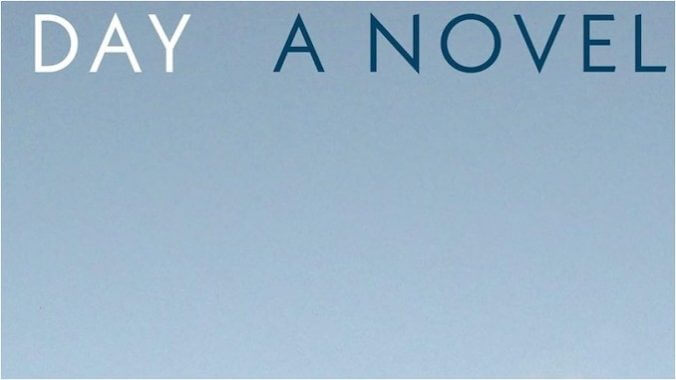Michael Cunningham’s Day Is a Timeless Exploration of a Very Specific Moment

Michael Cunningham is one of the best writers putting words on the page today. Lyrical and elegant, his style is instantly recognizable, and his delicate stories and beautiful turns of phrase stay with you well past a page’s final period. Perhaps it is due to his almost otherworldly command of language, but Cunningham is also particularly deft at giving voice to the things (and people) we often struggle to understand. Personally, I always come back to his Pulitzer Prize winner The Hours, a story that takes its inspiration from a Virginia Woolf novel that I viscerally hated during college English literature, but which Cunningham somehow made me see in an entirely new (and much kinder) way. Perhaps it is in that same spirit that we should approach his latest work, Day, a story that attempts to find meaning—and possibly even promise—in our collective experience of the COVID-19 pandemic.
Day is Cunningham’s first novel in nearly a decade (since 2014’s The Snow Queen), a quiet, introspective pandemic story that never actually says the word pandemic at all. It doesn’t put a name to the terror creeping through our days in 2020 or attempt to explain the origins of the event that rearranged our lives so thoroughly in the year that followed. But we know, and in that, we bear witness. As its title implies, the events of Day are set on the fifth day of April across three different years: 2019, in the world we still remember as normal; 2020, in the early months of lockdown; and finally 2021, when the arrival of vaccines convinced many the worst had passed. The story’s first act is set in the morning, its second at midday, and its third in the evening, and each work together to explore love, loss, anxiety, and the crushing uncertainty of just what we’re all meant to be doing here.
Day follows a Brooklyn family: Isabel, a hypercompetent photo editor who fears what she’ll do when the industry inevitably craters; her aging former rock star husband Dan, who is trying to find a way back to the stage; and their two children, angsty pre-teen Nathan and precocious elementary student Violet. However, it’s Isabel’s younger brother Robbie who largely holds their family together. A school teacher who offers a sympathetic ear, a stabilizing presence, part-time childcare, fashion advice, and funny stories about his own dismal love life, he’s charming, if a bit directionless, and wonders whether his decision to turn down medical school in the name of grading sixth-grade papers about Christopher Columbus was the right choice.
Despairing after another relationship has cratered, Robbie turns to social media for a serotonin boost, crafting a fake Instagram profile as “Wolfe”, a figure based on the imaginary older brother he and Isabel made up as children. (And a nod to Cunningham’s lifelong fascination with author Virginia Woolf.) Imaginary Wolfe has everything together: A handsome, thirtysomething pediatrician, he’s someone that everyone wants to like—and be like—even when Robbie’s sloppy social media management should make it obvious that Wolfe’s identity is cobbled together from photos borrowed without permission from strangers and the dreams of a country house the siblings once shared. But when Isabel decides Nathan and Violet are too old to be sharing a room, she asks Robbie to move out of the attic apartment atop their attic brownstone, and everything changes—-in more ways than any of them could have expected.
-

-

-

-

-

-

-

-

-

-

-

-

-

-

-

-

-

-

-

-

-

-

-

-

-

-

-

-

-

-

-

-

-

-

-

-

-

-

-

-








































